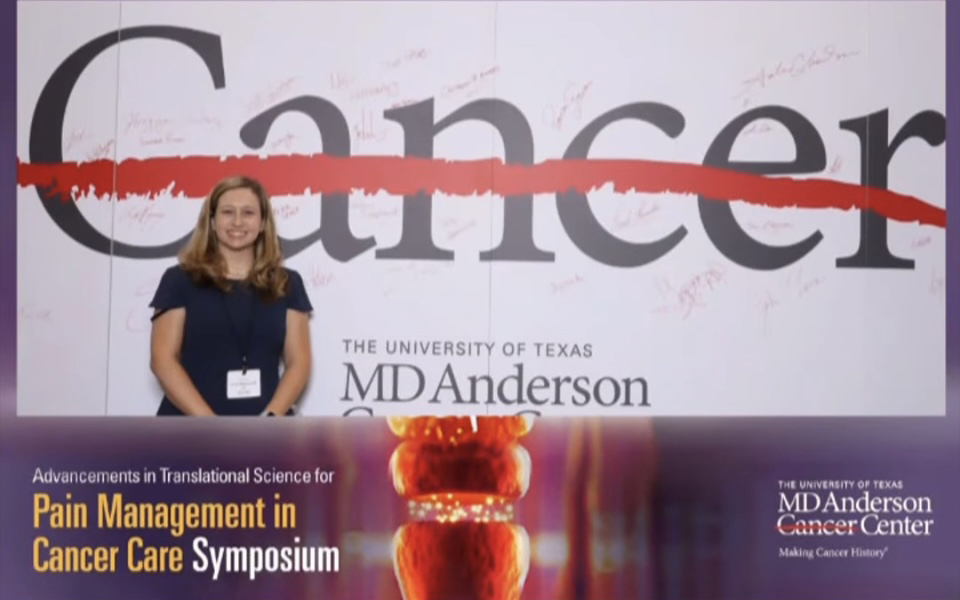 A research team from our department and the Center for Innovation in Pain Care (CIPC) won first place in the poster competition at the Advancements in Translational Science for Pain Management in Cancer Care Symposium, held at MD Anderson Cancer Center on May 9, 2025.
A research team from our department and the Center for Innovation in Pain Care (CIPC) won first place in the poster competition at the Advancements in Translational Science for Pain Management in Cancer Care Symposium, held at MD Anderson Cancer Center on May 9, 2025.
The award-winning poster, titled “Patient-Driven Opioid-Free Approach to Cancer Surgery,” was presented by Heather Margonari, DNP, FNP-BC, UPMC Lead Coordinator for the Opioid-Free Pathway. Co-authors were Shiv K. Goel, MD, Clinical Associate Professor and Chief Anesthesiologist, UPMC Shadyside, and Jacques E. Chelly, MD, PhD, MBA, Professor and Co-Director of our Center for Innovation in Pain Care.
The team’s research project, which was funded by the Shadyside Foundation, addressed the growing demand among cancer surgery patients for opioid-sparing alternatives through our Opioid-Free Surgical Pain Management Program that launched at UPMC Shadyside in 2024. In response to the opioid crisis and increased patient interest in avoiding opioids, the team developed a patient-driven surgical pathway that integrates physical and psychological strategies for perioperative pain management. This multidisciplinary program emphasizes patient education, shared decision-making, and individualized pain management plans. Techniques include regional anesthesia tailored to the surgical procedure and complementary therapies such as hypnosis, mindfulness, auriculotherapy, and music therapy. The RxWell app is also used to help manage stress, anxiety, and sleep disturbances.
The results were striking. Among 104 patients enrolled in the pathway, 72% successfully underwent surgery without opioid use. Of the remaining 28%, only 2% received opioids intraoperatively and 21% in the post-anesthesia care unit. The pathway showed significant success across procedures such as mastectomy, prostatectomy, nephrectomy, and cystectomy—procedures traditionally associated with high opioid use. This patient-centered model significantly outperforms the use of regional anesthesia alone, which has shown a 25%–46.5% success rate for opioid-free outcomes.
This recognition highlights our department’s and the CIPC’s leadership in pioneering safer, patient-focused strategies for perioperative pain care and demonstrates the value of bridging translational science and clinical innovation in the ongoing effort to reduce opioid exposure in vulnerable populations.
Congratulations to the entire team for this outstanding achievement!
Read more about the Opioid-Free Surgical Pain Management Program.
